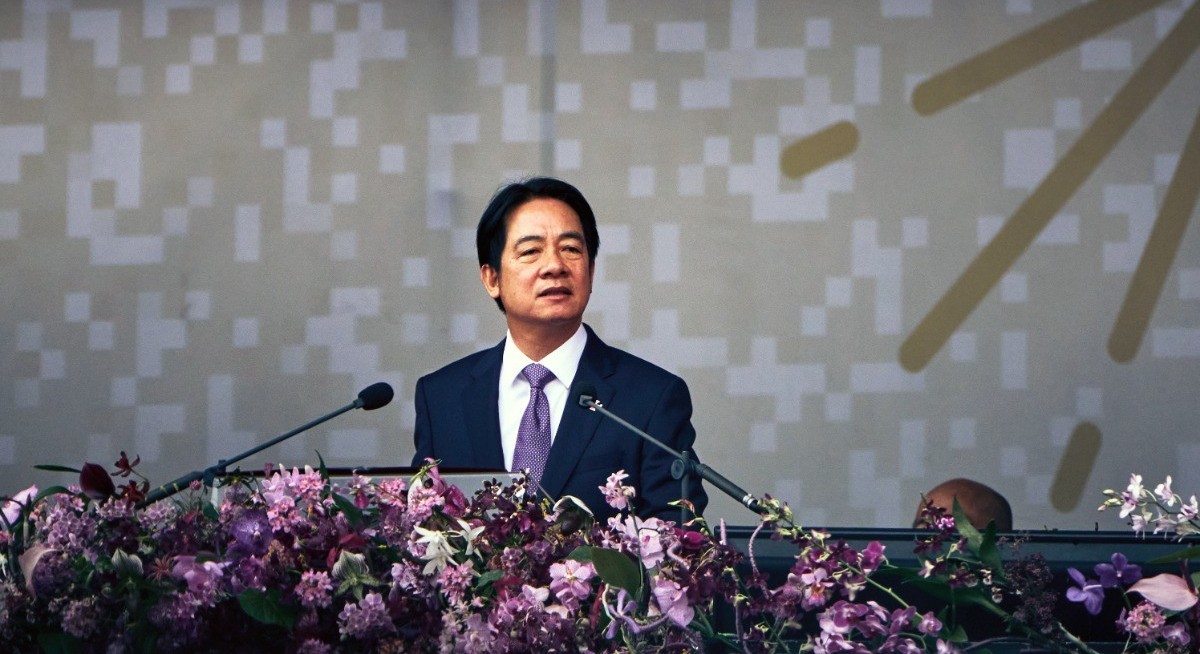“No country will be more determined in safeguarding Taiwan’s future than our own,” Lai said — a comment that follows US President Donald Trump saying while campaigning last year that the self-governed archipelago “should pay” for US protection from Chinese military aggression.
Speaking on Wednesday at a press briefing in Taipei with other top officials, Lai said the NT$1.25 trillion ($51.81 billion) would be spent over 2026 to 2033, though he avoided going into detail on where the money would come from. Defence Minister Wellington Koo added the funds would go towards a range of military equipment and platforms, including missiles and drones.
The US welcomed Lai’s announcement of the special military budget, Raymond Greene, the head of America’s de facto embassy in Taiwan, said in a statement. “Today’s announcement is a major step towards maintaining peace and stability across the Taiwan Strait by strengthening deterrence,” he added.
Taiwan stocks rose for a third day, climbing 1.9% on Wednesday. The Taiwan dollar advanced 0.3% to 31.33 versus the greenback.
See also: US tells American ships to keep away from Ïran amid tensions
Lai’s commentary comes as Taiwan sits front and centre in a spat between Beijing and Tokyo that has drawn in the US. Japan’s Sanae Takaichi recently angered Beijing by becoming the first sitting prime minister in decades to publicly link a Taiwan Strait crisis to a potential deployment of troops from her nation.
In an hourlong phone call with Trump on Monday, Chinese leader Xi Jinping seized on the dispute with Japan to assert China’s sovereignty over Taiwan — and possibly shape US policy in its favour. Hours later Takaichi said that Trump had reached out to brief her on the conversation with Xi, and reaffirm ties with one of the US’ most important allies in Asia.
When asked about Takaichi’s comments and Beijing’s response, Lai called on China to act like “responsible major power”.
See also: Tankers speed through Hormuz chokepoint on US-Iran tensions
The commentary in The Washington Post marks the latest example of Lai turning to American media outlets to get his point across to the US. That’s difficult for leaders in Taiwan given China objects to nations it has official ties with having contact with Taipei.
Earlier this year, he wrote in a commentary for Bloomberg that his government was committed to cutting trade imbalances with the US by purchasing more American energy, agriculture and other industrial goods.
While campaigning in 2023, he pledged in The Wall Street Journal to maintain the status quo with China if elected, a stance intended to reassure voters and the US that he could be trusted to handle a difficult relationship with Beijing.
Lai’s comments on the extra defence spending effectively confirm a figure unveiled by Taiwanese lawmaker Wang Ting-yu, the chair of the foreign affairs and defence committee, last month. Underscoring the historic nature of the plan, the NT$1.25 trillion sum exceeds the combined total of the four military-related special budgets approved since democratisation in the 1990s.
The funding is part of Lai’s push to raise military spending to 5% of gross domestic product by 2030 to counter China, which claims the self-governed archipelago as part of its territory and has vowed to bring it under Beijing’s control someday, by force if necessary.
Taiwan’s special budgets supplement the regular annual spending plan, providing funding for emergencies or projects that require years to complete. In the past, Taiwan had used the money to buy weapons including fighter jets and missile systems.
Lai announced in October that Taiwan will speed up development of a comprehensive air defence system dubbed T-Dome that is expected to integrate domestically and US-made weapons.
The special budget proposal will likely face obstacles once Lai’s Cabinet formally proposes it given it requires the approval of the legislature, which is controlled by the opposition. The main opposition party, the Kuomintang, favours developing closer ties with China, saying this would reduce cross-strait tensions.
Uploaded by Tham Yek Lee




